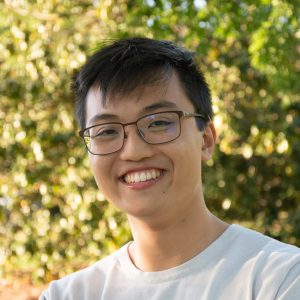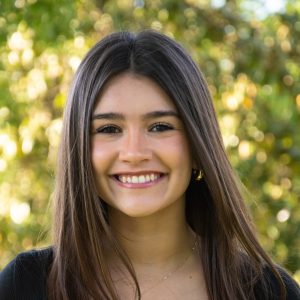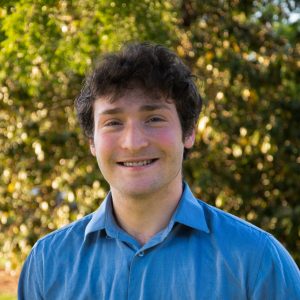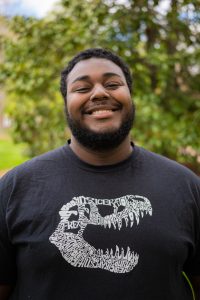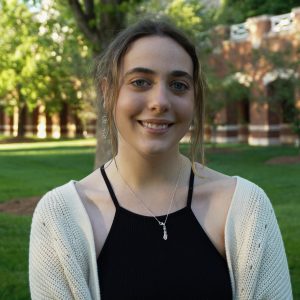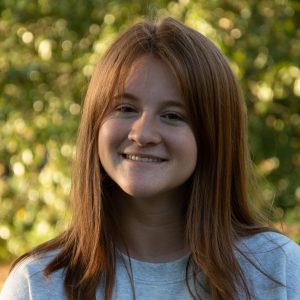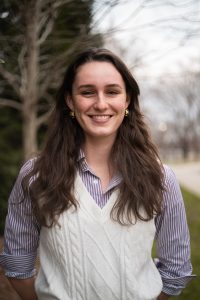What is Design Thinking?
Design thinking is the practice of exploring and understanding human behavior and unmet needs in particular contexts to frame problems worth solving, address them systematically and deliver viable new offerings. In considering what design thinking is, it’s useful to point to what design thinking is not. Design thinking is not a recipe. Designers and people who apply design thinking don’t insert problems at one end and have crisp solutions pop out at the other. The path from challenge to solution is messy and usually uncertain. Design thinking is not a problem-solving method. At its heart, it’s about finding the right problems to solve. Design thinking is not learned in quiet isolation. It is a practitioner’s art with a mastery pathway dependent on the interplay among study, reflection, and action.
See how faculty and students use Design Thinking to make important changes on campus. You can use the following pathways to take initiative and start making the changes so crucial to the community of Elon and beyond.
About Elon By Design
Design thinking has always been an integral part of the Elon University experience; we just didn’t always know what to call it.
Elon faculty and staff have pursued design-related research, curriculum, and activities daily across campus: in classrooms, studios, and even the Maker Hub. Elon 101 professors, as well as Entrepreneurship faculty, had begun to incorporate design patterns into curriculums, and four faculty members worked long hours to deliver the Design Studio for Social Innovation, a 16-unit, team-taught course offered in a studio environment.
Seeing this emerging pattern, Provost Steven House called a committee of deans, students and faculty members to investigate the potential directions for the initiative. Those efforts drew the attention of Trustee Cindy Citrone and led to a gift from her and her husband Rob to launch Elon By Design, the original design-thinking program initially led by Dawan Stanford. In 2019, Danielle Lake joined Elon as the Director of Design Thinking, leading Elon by Design and the Center for Design Thinking.
Student Design Thinking Catalysts
Aaron Chan
Student Director
Anya Bratic
Student Director
Trinity Barnett
Digital Marketing & Assessment Lead
Juan Daniel Chiriboga
Publicity Lead
Adam Kanowitz
Research Lead
Bernardo Vargas-Lopez
Center Manager
Joshua Franklin
Research Lead
Tyberious Brooks
Power + Place Lead
Theo Loehr
Design Thinking Catalyst
Aidan Spoerndle
Website / Catalyst
John Cirelli
Design Thinking Catalyst
Maddie Gibson
Administrative Lead
Lily Gooding
Design Thinking Catalyst
Logan Laszewski
Design Thinking Catalyst
Monique Grew
Design Thinking Catalyst
Cece Ayesha Ebora
Design Thinking Catalyst
What We Do
Elon By Design aims to
1) Create opportunities for the Elon community to build the confidence and ability to identify design challenges and respond to them with design thinking processes and methods
2) Generate ways for faculty and staff to explore how design thinking might support teaching, scholarship, and service at Elon. The aim of the Center for Design Thinking is engaging faculty, students, and staff across the university as part of a seven-element strategy:
- Designing the initiative with students, faculty, and staff
- Cultivating design thinking expressions at Elon
- Applying design to expressing Elon traditions and developing our future
- Bringing the best of design to Elon and our community
- Design conversations at Elon and beyond to inform the initiative
- Delivering design events, workshops, projects, experiences, and experiments contributing to the future of design in higher education
Elon by Design is an evolving system for consistent actions in and between these seven areas both guided and utilized by Elon students, faculty, and staff.
Pathways to Design Thinking Course
We offer a J-Term course open to any Elon students that explores Design Thinking in an educational context.
What you can earn!
- Transcript credit
- Digital LinkedIn Badge
- Your own Personal Design Project
- Client Project experience (helpful in building your resume!!)
- Friends and Food
- So, So, So Much More!
Register for J-Term Now!
Learn more about our mission.
Capacity
Elon By Design’s work across the university and beyond ensures that Elon students, faculty, and staff have the ability and confidence to respond to wicked problems with design thinking processes, methods and mindsets as they shape purposeful, impactful lives.
Experiential Learning
Elon journeys include practical design thinking learning opportunities, university services shaped by design thinking, and design-thinking influenced workshops, programs, courses, research opportunities, internships.
Real World Projects
Elon By Design is supporting and enhancing a cross-sector, global practitioner network with projects where students develop design thinking skills and Elon By Design actively participates in evolving design practice.
People
Visit our Participate page to learn more about our Student Catalysts and Interns and how you can become a part of our team!
People
Visit our Participate page to learn more about our Student Catalysts and Interns and how you can become a part of our team!
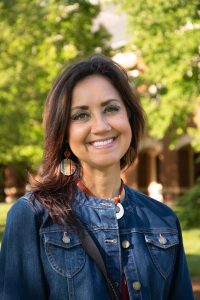
Dr. Daniella Lake
Dr. Tracey Thurnes
 Dr. Rozanna Carducci
Dr. Rozanna Carducci
Tyson Glover
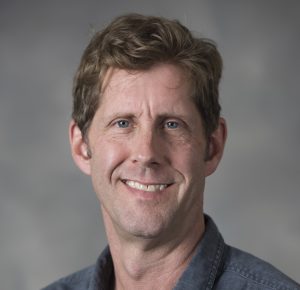
Dr. Phillip Motley
Director of Design Thinking, and Associate Professor
Danielle Lake has over ten years of experience creating implementing, and assessing innovative curricula designed to build student and community-capacity for addressing wicked problems. This experience has positioned her well to continue her work as an institutional leader, cross-campus consultant, and teacher-scholar of civic engagement.
With a Ph.D. in philosophy, her teaching and scholarship interests bridge Design Thinking and wicked problems research with the public engagement movement. Prior courses include “Design Thinking to Meet Real World Needs,” “Wicked Problems of Sustainability,” “Dialogue, Integration, and Action,” and “Reflect, Connect, Engage.”
As the former coordinator of the award-winning Accelerated Leadership Program and research lead for ten engaged department initiatives across three institutions, she also has leadership experience creating and assessing collaborative and innovative engagement projects that span curricular programs and bridge the university-community divide.
Lake received Early Career Recognition from the International Association of the Research on Service Learning and Community Engagement in 2018, the John Saltmarsh Award for Emerging Leaders in Civic Engagement from the American Democracy Project in 2017, the John Lachs Award for Public Philosophy in 2016, and the Jane Addams Prize from the Society for the Advancement of American Philosophy in 2014.
Lake is coeditor of the book series, Higher Education and Civic Democratic Engagement: Exploring Impact, with Peter Lang Publishing. She is currently interested in exploring the long-term impact of design thinking practices and pedagogies of resilience. Recent publications can be found at http://works.bepress.com/danielle_lake/
Lake is committed to partnering with students, faculty, staff, and the surrounding Elon community in order to support design thinking initiatives.
Position
Elon’s Design Thinking Research Catalyst is a faculty member who engages in, supports, and advances the critical study of design thinking. In addition to engaging in their own DT studies, the research catalyst also supports and advances the research accomplishments of Elon faculty, students, and staff across internal and external academic communities.
Purpose
Creating research opportunities for Elon students, faculty and staff to gain the experience, confidence, and competence to apply design thinking’s process, methods and mindsets to challenges.
Actions
The research catalyst:
- Offers mentorship, training, and guidance to help students develop research skills and ideas inspired by design thinking across disciplines;
- Works with the director of the Center to study design thinking practices and innovation in higher education;
- Develops collaborative relationships and research opportunities with faculty members interested in design thinking.
Bio
Dr. Tracey Thurnes is an Associate Professor in the Department of Physician Assistant Studies. She has worked closely with the Center for Design Thinking to apply design thinking processes and methods within the health sciences in both the undergraduate and graduate student populations. Her work focuses on applying design thinking concepts to develop critical thinking skills and leadership and professional competencies to positively impact learning outcomes to create solutions-oriented graduates.
Position
Elon’s Design Thinking Curricular Catalyst is a faculty member who supports the infusion of Design Thinking pedagogies across Elon curriculum. The Curricular Catalyst advances Design Thinking curricular initiatives through facilitating communities of practice, consulting with faculty, and by providing resources for infusing Design Thinking methods and processes into curriculum.
Purpose
Creating opportunities to increase faculty experience, confidence, and competence in implementing high impact practices rooted in Design Thinking across all disciplines.
Actions
The curricular catalyst serves as a connector for faculty across the university who want to increase students’ capacity for experiential learning with design thinking processes and methods. The curricular catalyst also works closely with the Director to design and facilitate communities of practice around design thinking pedagogies that develop collaborative relationships with faculty members interested in design thinking.
Bio
Rozanna Carducci is an Associate Professor of Education and the Graduate Director of the Master of Higher Education at Elon University. She is an active member of the editorial board for the Journal of Higher Education, and also holds active roles in NASPA Student Affairs Professionals in Higher Education, the Association for the Study of Higher Education and the American Educational Research Association.
Position
Elon’s Design Thinking Co-Curricular Catalyst is a faculty or staff member that creates, supports, and celebrates co-curricular design thinking experiences, events, and initiatives. The Co-Curricular Catalyst works as an ambassador with the Elon community to support Design Thinking initiatives. Assisting in connecting students, faculty, and staff to relevant resources offered in the center for Design Thinking.
Purpose
Creating extra-curricular opportunities for Elon students, faculty and staff to gain the confidence and ability to apply design thinking’s process, methods and mindset to challenges.
Actions
The CCC designs, supports, and facilitates co-curricular design thinking experiences intended for Elon and surrounding communities. The CCC assists the Director and other Catalysts in achieving the Elon by Design Mission. This includes:
-
- Developing expertise and leading (both creating and facilitating) 4-6 extra-curricular design thinking experiences throughout the academic year.
- Serving as a design thinking ambassador to Elon students, faculty, staff, and community members; attending design events whenever possible.
- Providing mentorship to one or more student catalyst and guidance to the Director in relationship to the CCC initiatives, meeting with the director and/or student catalysts weekly/bi-weekly.
Bio
Tyson Glover ’17 was among the first students to graduate from the Design Thinking Studio in Social Innovation. He is a passionate and enthusiastic advocate for the Design Thinking process and social innovation. Tyson is a co-founder of the organization Phoenix Flops, a proud Elon alumnus, and founder of the local start-up Food Drivers. He is eager to connect, create, and collaborate with Elon as the Co-Curricular Catalyst.
Position
Elon’s Design Thinking Community Catalyst is a faculty member who engages in, supports, and advances community-based learning, research, and service through the lens and practice of equity-centered design thinking (DT). In addition to engaging in their own community-engaged design thinking projects, the Community Catalyst also supports and advances DT community initiatives of faculty, staff, student, and community members.
Actions
The Community Catalyst
- Offers mentorship, training, and guidance to help develop projects inspired by equity-centered and community-based design thinking practices;
- Works with the Director of the Center to study the value and the challenges of DT community-engaged projects;
- Develops collaborative relationships and opportunities for faculty, students, staff, and community members interested in design thinking to support community-engaged projects.
Bio
Professor Phillip Motley is an Associate Professor of Communication Design. He teaches visual communication and interactive media courses to undergraduate and graduate students, and is Elon’s fourth Faculty Fellow for Service Learning and Community Engagement. He was one of the faculty architects of Elon’s Design Thinking Studio in Social Innovation, an immersive semester program focused on leveraging design thinking skills and processes towards social challenges within the community surrounding the university. He is a co-editor of Redesigning Liberal Education: Innovative Design for a Twenty-First-Century Undergraduate Education and has published widely on community-based pedagogies.
Design Thinking Catalyst Alumni
Where are they now?
Over the years, we have had many great Catalysts leave the Center to go on and do great work in the Design Thinking community. Upon leaving, we ask them to write letters to future Catalysts about what to expect from their time with Elon By Design. Read what they have to say about their experiences at the Center for Design Thinking.
 Dear Future Catalysts,
Dear Future Catalysts,
I have been where you are. Asking questions like,
- “What will this job be like?
- What exactly is design thinking?” and
- “What will I get out of this?”
Well…I can tell you. This job is unlike any role you may have had before. It will push you to think outside the box, be agile, and build resilience within yourself. You will be working with a fun and amazing team that is there to support you.
Design thinking is a creative goal-setting and problem-solving method that you can apply to your life, education, and personal projects. Almost anything you can think of design thinking methods are applicable to.
Design thinking isn’t an easy concept to wrap your mind around at first. Working through the design process itself is especially challenging. It takes time and constant application to master. As a Design Catalyst your job is to take up the challenge to do just that. Unlike any other group on campus you will have the opportunity to live, learn, and instruct others on design thinking methods all at once.
You won’t be on this journey by yourself. You will be working with a fun and amazing team that is there to support you and your goals. This job relies heavily on teamwork. Having a team mindset will be the key to being a successful catalyst. Don’t be afraid to rely on each other, that’s why you’re a team!
You will see yourself and your teammates grow in ways you never imagined. I challenge you all to be a mentor in some capacity to each other. As peers you can help each other more than you think. Being a group that embraces and supports each other’s strengths and weaknesses is essential to being great catalysts.
Overall, this experience will be what you all make it. What is growth without fun? Start your own team rituals, gatherings, get togethers, and support each other outside the center. You’re gonna spend so much time together so you might as well. I wish you all success on your journey’s in the center and at Elon. Have faith in yourself and your team and the sky’s the limit!
Peace,
Mentor-lead Trés Jones
 Letter to future Catalysts,
Letter to future Catalysts,
I have had 7 different jobs before I had this one and I can confidently say that none have broadened my idea of what I was capable of more than this one. Being a design thinking catalyst is not the typical job, you won’t be sitting around at a front desk doing your homework – it is hard and a lot of times I had to do tasks I had never done before, but because of that, I have had a lot of personal and professional development. This job and all the people I have gotten to work with have broadened my idea of what possibilities were available for the rest of my life. I was able to complete things that were so far out of my comfort zone and that gave me a lot more confidence when I was applying for jobs post-grad. I got the post-grad job I have now because of my experience facilitating workshops and being forced to become comfortable presenting to a large group of people. Working in the Center for Design Thinking has truly shaped the rest of my life, and it is something that I will carry with me from now on. My advice to you all is to treat this job like a class – each task as an opportunity to learn and develop your skills. Additionally, think about how you can connect your passions with Design Thinking and work to make that happen.
Mackenzie Hahn

Dear Future Design Thinker,
You are about to embark on a journey like no other. If you choose to walk through these doors into the Center for Design Thinking, you need to realize you are entering a space of possibilities! This isn’t like every other classroom you will experience at Elon.
I have been a member of the Elon community for 8 years, from my time as an undergraduate student to a staff member. I can honestly say this has been my favorite place on campus. Drop what you think you know and be open to the amazing experience of design thinking. Be open to saying yes to new ideas and possibilities.
Design Thinking will help unlock a new way for you to see the world and an opportunity to change the world. If you have never heard of the term Design Thinking until today I’m thrilled to know that you are here for a new experience. We can’t wait to hear your unique perspective and get to know your story.
The biggest takeaway and lesson I have had from the Elon Center for Design Thinking is that there are two things that people can’t stand
1) Change
2) The way things are. Be open to changing the right things and have fun doing it!
Sincerely,
Tyson Glover
Elon University Design Thinking Graduate ‘2017
Design Thinking Co-Curricular Catalyst ‘2021

Dear Future Catalysts,
When I was first introduced to design thinking, it was a foreign concept to me. In the beginning, I could not quite grasp what design thinking was. As a design catalyst, you will learn that design thinking is a combination of a process, tools and mindset, but it is actually much more than that. I view design thinking as a positive and creative outlook on life.
We all have problems that we deal with, but what sets us apart is how we deal with them. Since joining Elon by Design as a design catalyst, I have adapted the design thinking mindset to my everyday life. Design thinking helps me to solve problems, in and out of the classroom.
The best part about being a catalyst is that you have your teammates to go through this experience. When there’s something you don’t understand, or you feel a bit lost or confused, they will be there as your confidants to help you.
Design thinking has helped me to grow as a person and expand my knowledge on topics ranging from playful learning and bias to liberation and failure. Whenever I feel stuck in a situation, I try to map out my solutions through design thinking.
Although I won’t be here next semester, just know that your Elon by Design family will be a support system throughout and past your time at Elon.
Isabel Manella
Recent Graduates
Sonali Schroder ’24

Major: Arts Administration
Minors: Art and Spanish
Member of: College Fellows, College Fellows, EMPRESS, El Centro, SMART mentor
Project: Graphic Design and Power & Place Collaborative
Sarah Gaynor ’24

Major: Engineering
Minors: Economics
Member of: Club soccer, women in computer science
Project: Design Catalyst
Chase Solomon ’23
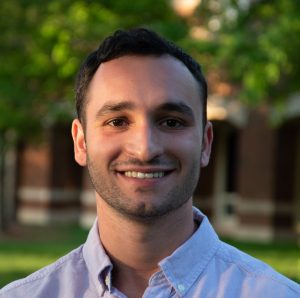 Major: Integrative Biology
Major: Integrative Biology
Minor: Neuroscience and Public Health
Member of: College Fellows, Hillel, Elon Community Accessibility Team
Project: Team Lead
Kendall Gilbert ’23
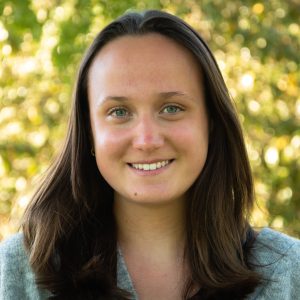 Major: Media Analytics
Major: Media Analytics
Minor: Business Administration and Statistics
Member of: Club Soccer, ODK Leadership Honor Society, Elonthon, Phi Mu
Project: Social Media Strategist
Soniyah Robinson ’23
 Major: Journalism
Major: Journalism
Minor: Entrepreneurship
Member of: Black Student Union Communications Committee and SMART Mentor Program
Project: Social Justice Lead
Emily Joss ’23
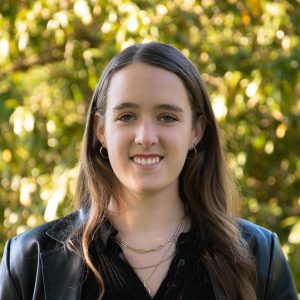 Major: Exercise Science
Major: Exercise Science
Minor: Coaching
Project: Design Forge Conference Planner & Scheduling Lead
Ashleigh Azan ’23
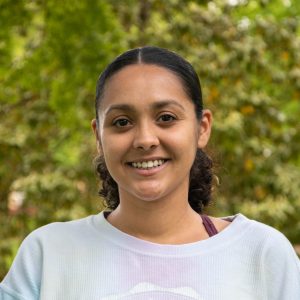 Major: Biomedical Engineering
Major: Biomedical Engineering
Minor: Exercise Science
Project: Maker Apprentice
Graciela Sosa ’23
Major: Communications
Projects: Graphic Design Lead, Center Report
Megan Casner ’22
 Major: Anthropology and Sociology
Major: Anthropology and Sociology
Minor: Biology
Projects: Research Lead
Jackie Baumann ’22
 Major: Marketing and Strategic Communications
Major: Marketing and Strategic Communications
Projects: Purposeful, Playful Collaborations and Teams Lead
Kait MacIntyre ’22

Major: Strategic Communications and Media Analytics
Projects: Center Organization & Workshop Facilitation
Sarah McDonald ’21

Major: Communication Design
Minor: Multimedia Authoring
Projects: Communications Catalyst
Olivia James ’21

Major: M.A. Interactive Media
Undergrad: BFA Dance Performance and Choreography (Elon ’20)
Projects: Elon By Design Website and Center branding
Meg Boericke ’21

Lead Brand Strategist & Graphic Designer
Program: M.A. Interactive Media
Undergrad: BFA Dance Performance and Choreography, B.S. Strategic Communications (Elon ’20)
Projects: Center for Design Thinking brand identity, marketing, and promotional materials
2023 Interns and Catalysts
Our student staff has a wide variety of majors, interests, and backgrounds. Read more about their experiences and work with The Center for Design Thinking and Elon By Design.
Center for Design Interns
Katie Murphy ’22

Elon 101 Special Project
Major: Strategic Communications
Minor: Sport Management and Leadership Studies
Member of: Sigma Kappa, Student Union Board, Elon Volunteers!
Projects: Integrate Design Thinking into Elon 101
Alexandra Strouse ’22
 Communications Intern
Communications Intern
Major: Dance Performance and Choreography, Strategic Communications
Member of: Elon Dance Company, Elon’s Finest, Alpha Omicron Pi
Projects: Designing and creating visuals to support workshops, Speaker Series 2021, Power and Place Collaborative, Design Thinking research
Zack Fertig ’22
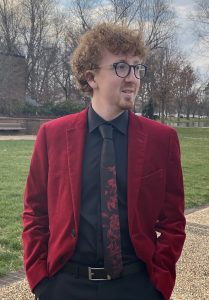 Web Development Intern
Web Development Intern
Major: M.A. Interactive Media
Undergrad: Mathematics & Computer Science with Game Design (Elon ’21)
Member of: Esports, דל
Role: Web Developer & Graphic Designer


